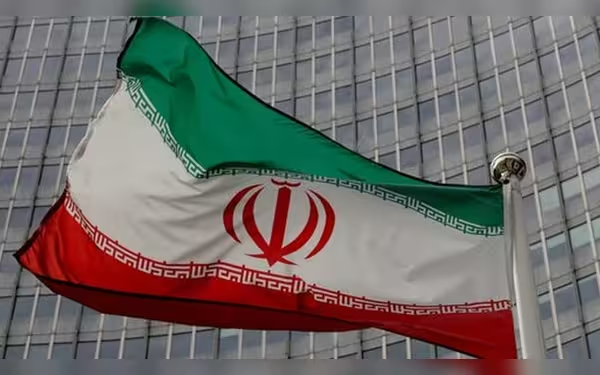Saturday, November 16, 2024 03:18 PM
Iran Summons Afghan Envoy Over National Anthem Disrespect
- Iran protests Afghan official's anthem disrespect.
- Similar incident occurred in Pakistan recently.
- Cultural practices clash with diplomatic norms.
 Image Credits: geo
Image Credits: geoIran summons Afghan envoy over national anthem disrespect, following a similar incident in Pakistan, highlighting cultural and diplomatic tensions.
In recent days, tensions have escalated between Iran and Afghanistan over incidents involving disrespect towards national anthems. This situation has drawn attention not only for its diplomatic implications but also for the cultural sensitivities involved. The latest incident occurred when Iran summoned the acting head of Afghanistan's embassy after an Afghan official failed to stand during the playing of Iran's national anthem at a conference in Tehran. This event follows a similar occurrence in Pakistan, where Afghan officials also did not stand for the national anthem.
The Iranian foreign ministry expressed its discontent, stating that a "strong protest" was lodged against the Afghan representative's actions, which they deemed "unconventional and unacceptable." The ministry emphasized that respecting the national anthem is a fundamental aspect of diplomatic etiquette. The Afghan delegate, while apologizing for the incident, explained that the Taliban government has banned music in public, which influenced his decision to remain seated.
This incident is not isolated. Just days earlier, Pakistani officials summoned the Afghan charge d'affaires after Afghanistan's acting consul general and another official did not stand during the national anthem at an event in Peshawar. Afghan representatives claimed that their actions were not meant to be disrespectful, citing the ban on music as the reason for their behavior. The spokesman for Afghanistan's consulate stated, "Because the anthem had music, the consul general and an official did not stand. We have banned our national anthem because of the music." This explanation highlights the complex interplay between cultural practices and diplomatic norms.
Iran and Afghanistan share a long border of approximately 900 kilometers (550 miles), yet Iran has not officially recognized the Taliban government since it took power in August 2021. This lack of recognition adds another layer of complexity to the diplomatic relations between the two nations. The recent incidents serve as a reminder of the importance of cultural respect in international relations. While the Afghan officials may have acted according to their customs, the expectations of host countries regarding national symbols cannot be overlooked.
These incidents underscore the delicate balance between cultural practices and diplomatic protocols. As nations navigate their relationships, it is crucial to foster mutual respect and understanding. The world is watching how these interactions unfold, and it is essential for both Iran and Afghanistan to find common ground to avoid further diplomatic rifts. Respecting national symbols is not just a matter of etiquette; it is a reflection of the values that underpin international relations.













